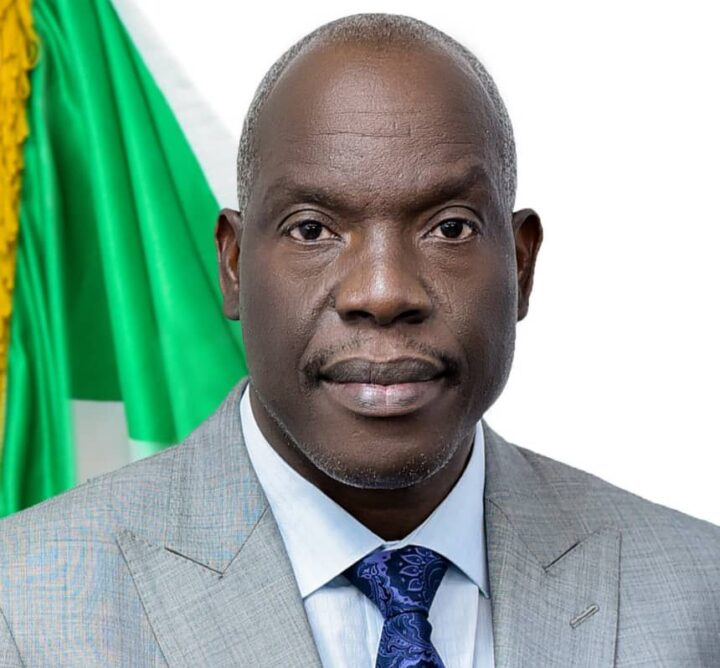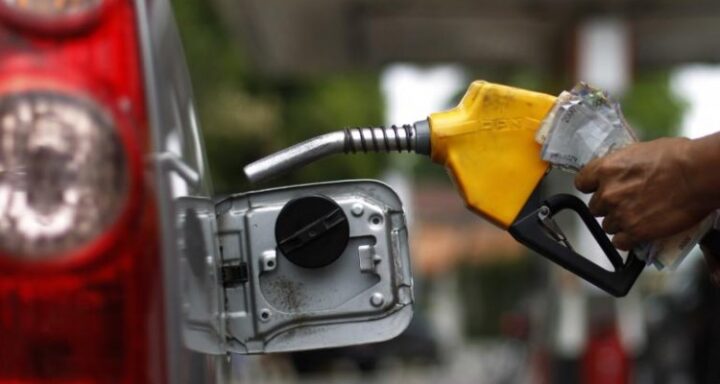The Nigerian Upstream Petroleum Regulatory Commission (NUPRC) says it is taking measures to help achieve the 40 billion barrels oil reserves target of the government.
Gbenga Komolafe, chief executive officer of NUPRC, said this on Tuesday at the annual conference of the Nigerian Association of Petroleum Explorationists in Lagos.
He said Nigeria’s oil production had declined to an average of 1.6 million barrels per day (bpd).
Komolafe said the decline in production could be attributed to theft, insecurity, aging facilities, and the decline in exploration and production enhancement initiatives.
Advertisement
He said as the upstream technical and commercial regulator, the agency was committed to addressing the issues causing the decline in daily production in order “to increase our reserves to 40 billion barrels and raise our production to three million barrels per day.”
He said the measures include the initiation of public, private, partnership (PPP) involving security agencies, private operators, and other stakeholders to address the challenging issues of crude oil theft, sabotage, and pipeline vandalism.
“Collaborative efforts between operators, communities and the deployment of state-of-the-art technology to monitor pipelines in remote areas is on course,” Komolafe said.
Advertisement
“Already, as a commission, we have commenced consultation with relevant stakeholders towards the achievement of these objectives.
The NUPRC boss said a more aggressive policy on routine asset integrity management to curb crude leakages and spills caused by aging facilities would be adopted.
“An initiative to reduce the cost of production while also benchmarking cost across terrain is ongoing,” he added.
“We are making provisions to incentivise drilling targets at deeper horizons and to also provide guidelines to ensure seismic acquisition design to image deep plays.
Advertisement
“Attractive incentive is being made to encourage multi-client and speculative data companies to acquire state-of-the-art data in open acreage to facilitate exploration activities.”
The NUPRC chief noted that the pandemic created an unprecedented global crisis that caused countries and companies to experience a reaction, resilience, and adjustment for a new reality.
He said the upstream petroleum sector was not left out from the impact of the COVID-19 pandemic, which according to him did not only affect the global oil market but also endangered the health and safety of the environment and its workforce.
“The effect of the pandemic on our crude oil and gas production was evident in the shut-in of oil and gas wells, deferred production, declaration of force majeure, and suspension of projects,” he said.
Advertisement
“Without a paradigm shift in our exploration and production value chain, it will be very difficult to keep the industry afloat. More than ever before, the industry is plagued by investor skepticism, high-level competition, climate change, and clamour for a clean environment.”
In acknowledgment of the current energy transition, Komolafe said the regulatory focus of the NUPRC would be targeted towards enabling sustained upstream investments.
Advertisement
He expressed optimism that the enactment of the Petroleum Industry Act would effectively stimulate necessary investments in the industry, improve investor confidence and address major community issues.
Advertisement
Add a comment






